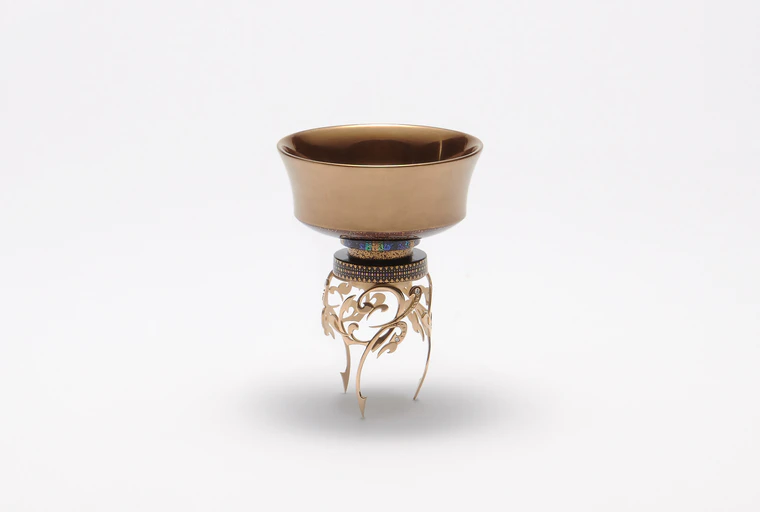Stemmed Goblet with Maki-e and Inlaid Mother-of-pearl, "Splendor"
H 10.0 x W 7.6 cm,Year.2018Yasuhiro Asai
1983 -- Lacquerware
-
Price Range
$12,000 - 70,000
Info
The prices of the artworks on Gallery Japan are determined by the artists themselves and are published directly on the website.
close - Awards at Japan Kōgei Assoc. Exhibitions : 6
About the Artwork
A stemmed goblet with a metal stem. The goblet is decorated with makie and mother-of-pearl inlay.
Description
-
CategoryLacquerware
-
MaterialsUrushi lacquer, Great green turban shell, Gold powder, zelkova, Silver, Diamonds
-
DimensionsH 10.0 x W 7.6 cm
-
Year presented2018
-
Paulownia BoxIncluded
-
InstructionsWash with a soft sponge and wipe dry to clean.
As lacquerware is sensitive to ultraviolet rays, please avoid direct sunlight and store in a paulownia box when not in use to maintain good condition.
Techniques Used
Maki-e
Maki-e (literally “sprinkled pictures”) is a representative lacquerware technique that originated in Japan around 1,200 years ago. Maki-e is done by painting lacquer motifs on the surface of a piece using a fine brush and then sprinkling gold powder onto the lacquer before it hardens, producing luxurious decorations.
Mother-of-pearl inlay (Raden)
Mother-of-pearl inlay (Raden) is a decorative technique that uses the iridescent inner layer of abalone shell, turban shell, pearl oyster shell, or other mollusk shells. The technique came to Japan from China 1,300 years ago, and pieces featuring mother-of-pearl inlay are included among the artifacts at the Shōsōin Repository in Nara.
Please feel free to contact us to commission work, check artworks available for purchase etc.

